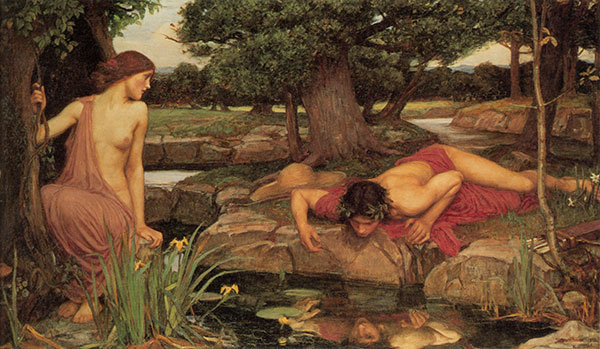Warner Bros. has unveiled an official trailer for the This Is Where I Leave You. The story for this film adaptation is based on Jonathan Tropper's novel.
The video embedded above features scenes with actors Jason Bateman, Tina Fey, and Jane Fonda. A release date has been scheduled for September 12, 2014. (via BuzzFeed)
New Career Opportunities Daily: The best jobs in media.
By Jane Alison
Jane Fonda spoke passionately about teenage sexuality this week on the Diane Rehm Show. (Her new book is Being A Teen: Everything Teen Girls & Boys Should Know About Relationships, Sex, Love, Health, Identity & More.) Fonda’s book and words are very much of our age, yet some of her most moving points evoke the ghost of Ovid and his mythic stories of young sexuality that are over two thousand years old. His tales tell of the awful desire to melt into someone else, or the misery of living in the wrong sexual form, or the terror of first being touched by another. If someone can pierce you in sex and in love, how do you survive?
Here’s Jane Fonda on girls and anorexia:
It’s interesting that the eating disorders start with girls when they enter puberty, which is the time when girls very often lose their voice. Their voice goes underground, and they become what they think other people want them to be.

Echo and Narcissus, John William Waterhouse, 1903. Walker Art Gallery, Liverpool, UK.
And here’s Ovid, telling the story of Echo and the beautiful boy Narcissus, who is wanted by girls and boys alike but has no need for anyone:
Seeing Narcissus drive frightened deer into nets
was that chattery nymph who couldn’t keep quiet
or start talking herself, poor clamoring Echo.
She still had a body, she wasn’t just voice,
yet could use her mouth then only as she does now:
helplessly repeating the last words someone says. . . .
Echo singsongs back
another’s voice and parrots the words she’s heard.
When she saw Narcissus roam alone in the woods
she was excited at once and secretly trailed,
and the closer she followed the hotter she grew,
as when sulfur is daubed at the top
of a torch and snatches the dancing flames.
Oh, how she wanted to go with sweet words and say
how she longed for him! But her nature stopped this,
would let her start nothing. So she would wait
and do all she could: cry back any words he said.
The boy had somehow lost his close gang of friends
so called, “Is anyone here?” “Here!” called Echo.
He was surprised, looked around, and then shouted
“Come!”—and she shouted it back to him shouting.
He looked again, and when nobody came, he called
“Why stay away from me?”—she called the same.
He stood still, tricked by the sense of an answering voice,
and cried, “Be with me, come!” Never more lustily
would Echo cry any words: “Be with me, come!”
And she herself followed these words from the woods,
rushing to throw her arms around his sweet neck.
But he bolted and, bolting, shouted, “Hands off!
I would die before I’d give you anything.”
Stricken, she could only say, “I’d give you anything . . .”
Then she hid in the woods, kept her mortified face
muffled in leaves, and lived only in lonely caves.
But her love clung, swelled with painful rejection;
sleeplessness wasted away her poor flesh
and pulled her gaunt and tight. Her freshness and sap
drifted into air; only voice and bones remained.
Then voice alone—they say her bones became rock.
Now here’s Jane Fonda on teenagers and sexual orientation:
The suicides, the depression, the cutting, the damage to self for young people who question their sexual orientation is absolutely heartbreaking . . . Some people are born into the wrong apparent gender. They appear to be one gender but everything about them knows that they’re really another gender . . . More and more young people are saying to their parents, I’m not a girl, or I’m not a boy—I won’t wear those clothes . . .
And here’s Ovid, telling (with irony) the story of Iphis, whose mother has raised her secretly as a boy to save her from being killed. Iphis is now betrothed to an unsuspecting girl, Ianthe, and is utterly perplexed:
The two had the same age and same looks; the same
teachers had taught them their letters and numbers.
Love struck each fresh heart and gave each the same
longing—but in hopes they were far from the same.
Ianthe wants her wedding, bridal torches and all,
certain the one she takes for a man will be one.
Iphis loves, too, but can’t hope to savor that love,
and this kindles her hotter, girl burning for girl.
Barely holding back tears, she says, “What will become
of me, smitten with this freakish, unheard of new
love? If the gods had wanted to ruin me, they
could just have given me a natural problem.
Cows don’t itch for cows, or mares for other mares.
A ram craves a ewe; a hind follows her stag.
Birds mate like this, too—in the animal world
no female’s overcome with lust for a female.
I wish I just weren’t! In case there’s some monster Crete
didn’t yet have, Pasiphaë fixed her heart on a bull.
But that was female-on-male, and my love’s truly
more brainsick than that. . . .
If all the world’s cleverness poured down upon me
or Daedalus flew his wax wings right here, what
could he do? Make a boy of this girl with clever
contraptions? Or is it you he’d change, Ianthe?
Pull yourself together, Iphis. Toughen your soul.
Give up this stupid obsession, this hopeless hope.
You see what you are. Or do you fool yourself, too?”
At the last minute, though, Iphis is transformed into a boy: a happily magical ending.
Bodies do change, and who feels this more acutely than teenagers? Ways of talking about sexual changes and encounters—the strange borders of the self when first touching another—change too, from the metaphorical psychologies of Ovid to the popular teachings of a modern icon. But the truths inside both bodies and the tales we tell about them seem indeed to stay the same.
Jane Alison is author of Change Me: Stories of Sexual Transformation from Ovid. Her previous works on Ovid include her first novel, The Love-Artist (2001) and a song-cycle entitled “XENIA” (with composer Thomas Sleeper, 2010). Her other books include a memoir, The Sisters Antipodes (2009), and two novels, Natives and Exotics (2005) and The Marriage of the Sea (2003). She is currently Professor of Creative Writing at the University of Virginia.
Subscribe to the OUPblog via email or RSS.
Subscribe to only classics and archaeology articles on the OUPblog via email or RSS.
Image: Public Domain via Wikimedia Commons.
The post Sex and the ancient teenager appeared first on OUPblog.

Review: Jane Fonda in 33 Variations. Written and Directed by Moisés Kaufman.
January 30 – Marc h 6, 2011 Ahmanson Theatre at the Los Angeles Music Center.
Also starring Samantha Mathis, Don Amendolia, Susan Kellermann, Greg Keller, Grant James Varjas, Diane Walsh, Scott Barrow, Caitlin O’Connell, Yvonne Woods Slaten, with Zach Grenier.
Music by Ludwig van Beethoven.
Michael Sedano

The first time I saw Jane Fonda in propria persona, 1973, she was hanging in effigy. Targeted by a gaggle of screaming angry partisans, not even singing the National Anthem stilled their vitriol.


When I more recently see Fonda, on stage in the Mark Taper Forum’s temporary digs, the Ahmanson auditorium, all the screaming signals that Fonda and company, in the middle of the run and in full stride, are delivering on the promise of a 2009 Broadway hit, revisited for the hustings.
On entering the sparely-decorated auditorium’s cavernous space, theatergoers in the front rows take in the two balconies and the fancy private boxes reigning above the orchestra seats before negotiating a path to the selected seat.
Dismay sinks in with center row seats. 17 laps 40 shoes assorted purses in the path. Multiply that by 1600 seats, an early arrival makes excellent sense. Shorter rows with lots of aisles sacrifice a few dozen seats. But then, anything that takes the ordeal out of being a paying customer of the Ahmanson Theatre makes sense.
The Ahmanson packs them in, but I imagine seeing this performance in the intimacy of the 760 seat Mark Taper Forum. Heaven. (FYI: 33 Variations is on the Taper bill, but housed in temporary quarters.)
After the shock of getting to one’s seat, the stage before one comes with a pleasant minimalist intensity. Hanging in six-high rows four across suspended on a grid, rectangular sheets flutter lazily in air conditioning currents. The sheets appear to be handwritten music paper, now serving as the projection surface for the musical notes coming over the loudspeaker.
The frames holding the sheets whirl on unseen wheels, becoming the curtain that flips open to frame Jane Fonda. It’s the only awkward moment of the performance, Fonda waiting to be recognized, the audience waiting to applaud maybe because they don’t recognize the thin woman waiting upstage to advance on the first handclaps.
Music by Ludwig van Beetho







For my bio just click my name for web site here on La Bloga, an error, gracias.